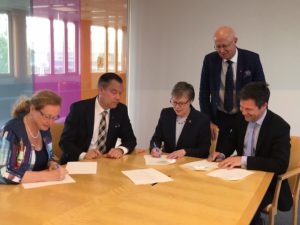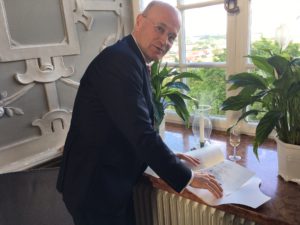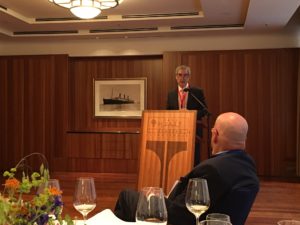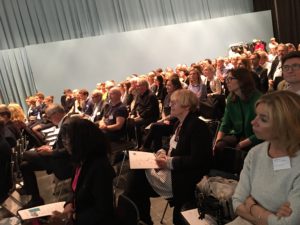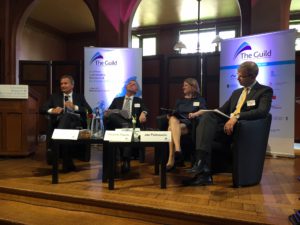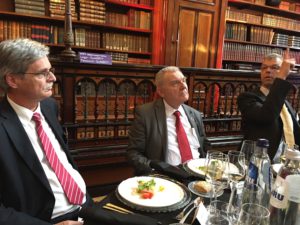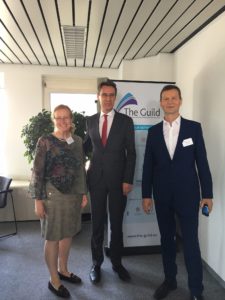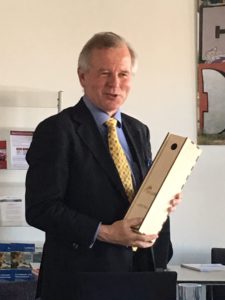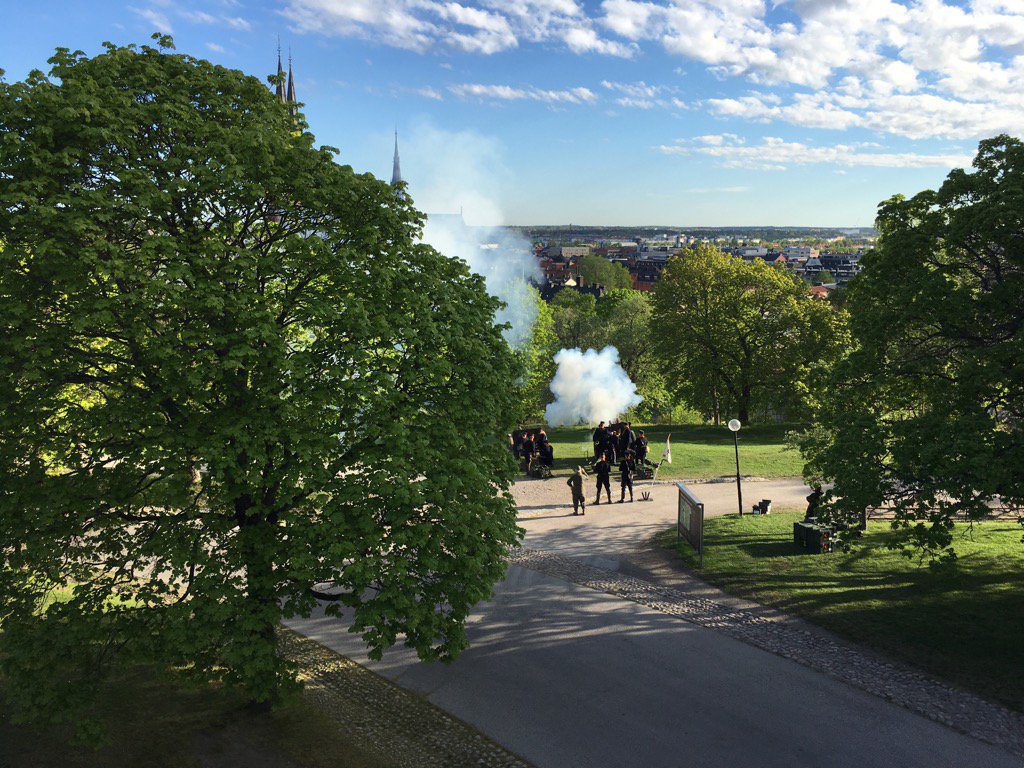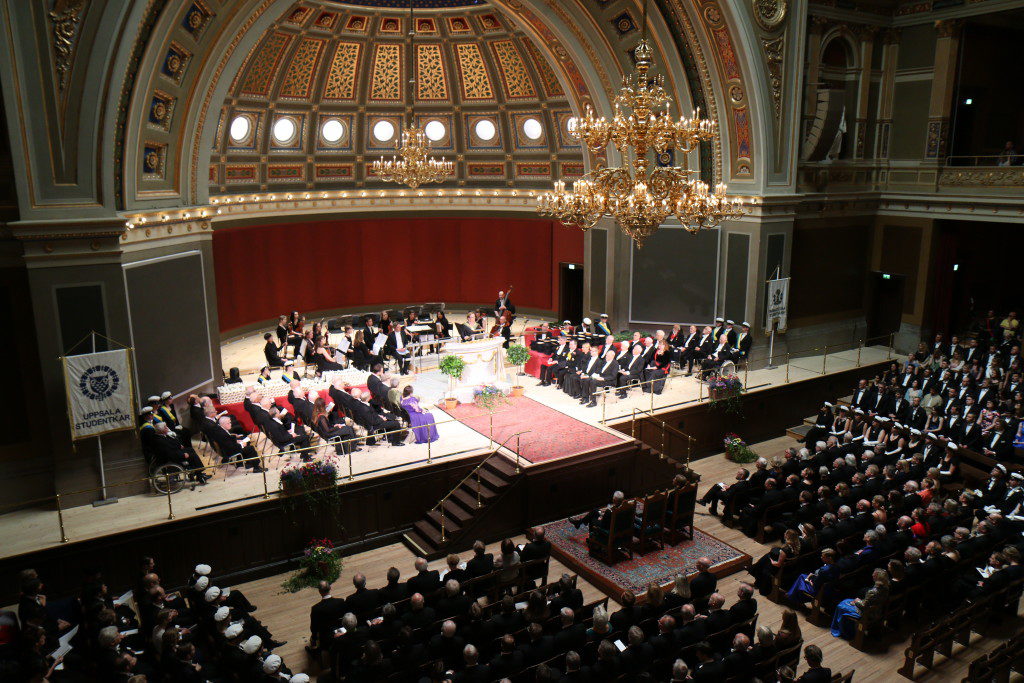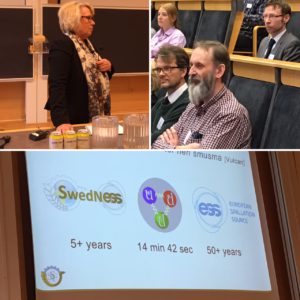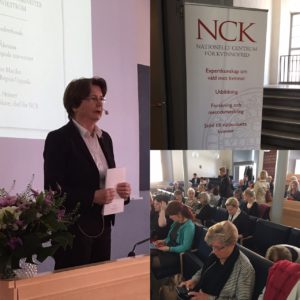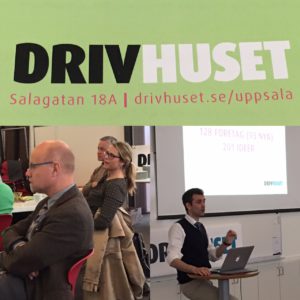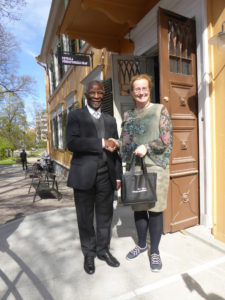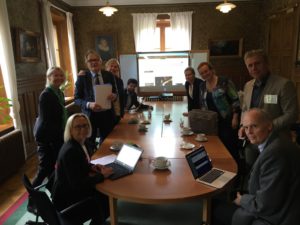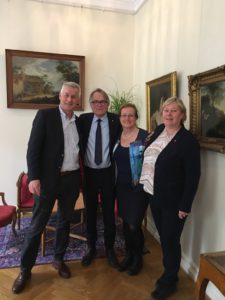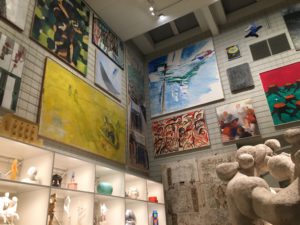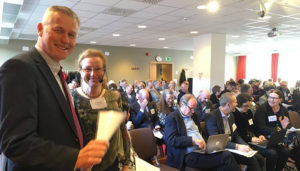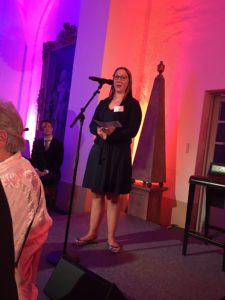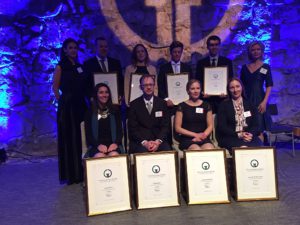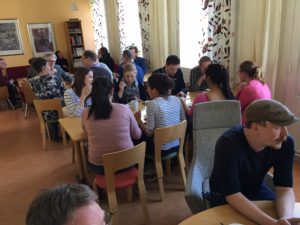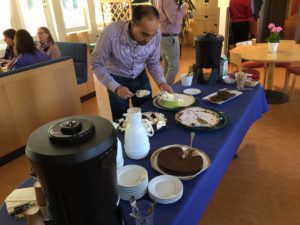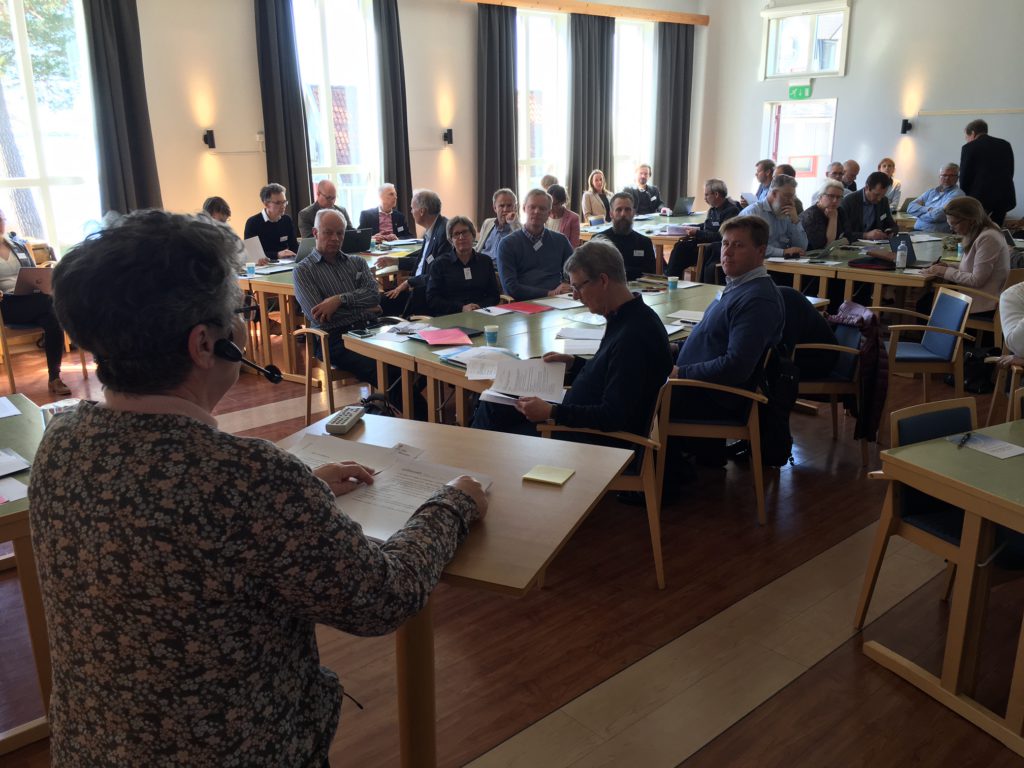Yesterday I signed an agreement on cooperation – Lärosäten Öst (Higher Education Institutions East). The participants are Uppsala University, the Swedish University of Agricultural Sciences, Örebro University, Dalarna University, the University of Gävle and Mälardalen University.
When a regional reorganisation of Sweden was under discussion a year or two ago, we vice-chancellors in the proposed new region began to talk about enhanced cooperation. They were good discussions and a number of constructive ideas for enhanced cooperation came up. The regional reorganisation is now on ice, but the cooperation will continue.
In many respects, it’s a matter of continuing to build on what we already have. For instance, in research we have clinical research centres in several towns in the region. We cooperate on placements in many of our degree programmes, not least teacher education and specialist nursing programmes. Uppsala University Innovation has engaged in cooperation with both the University of Gävle and Dalarna University for several years. By cooperating, we higher education institutions take greater joint responsibility for ensuring that certain programmes that are in demand on the labour market are always offered in our region.
Uppsala University already cooperates with the Stockholm universities in several areas, but that is no obstacle to taking greater responsibility in our region. The one does not exclude the other – quite the contrary. Nor do I believe there is a contradiction between local and global. A more explicit regional rootedness can strengthen our international position.
We also intend to increase collaboration on the administrative side around certain expert and support functions. A network doesn’t carry on of its own accord, nor does it exist just for the sake of it. I believe in cooperation – together we can do more than we do separately. Now ideas and ambitions will take real shape and offer new opportunities for students, staff, businesses and organisations in our region.

